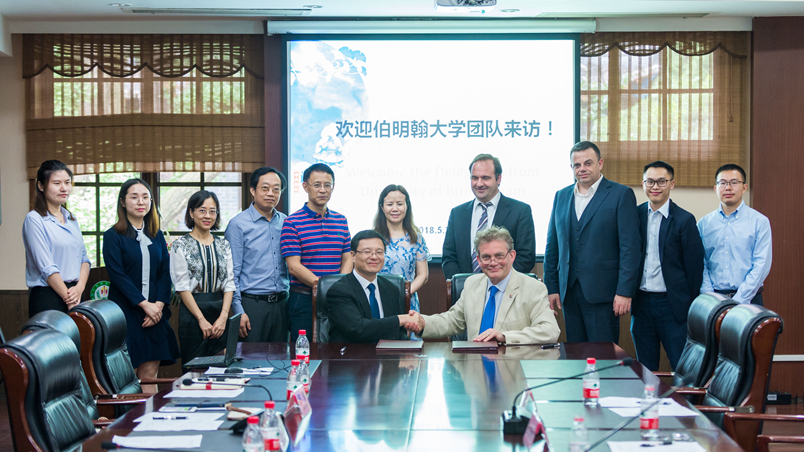
On May 21, 2018, West China Hospital and University of Birmingham signed an agreement to organize and analyze patient information under related laws and regulations from both countries and help improve healthcare for thousands of people.
By using data science for life sciences the team can tap into a huge amount of medical information that will allow them to better understand a range of conditions through work in Precision Medicine, Translational Medicine and Rare Diseases.
Professor Wan Xuehong, Executive Vice President of West China Hospital, Sichuan University, said: ”I believe that through the strong alliance with West China Hospital and Birmingham University, we will make breakthroughs in rare diseases, precision medicine, and translational medicine, etc., for the benefit of people in both countries and even the world.”
Today’s agreement was also signed by Professor Jon Frampton, Director of the University of Birmingham’s China Institute, who commented: “The University of Birmingham is a world leader in data sciences and our partnership with West China Hospital will help to increase medical understanding and improve outcomes for thousands of patients in China.
Using data science will allow the University and Hospital to understand a condition in the context of relatively large numbers of people. Precision Medicine allows doctors to group patients by condition and tailor treatment to individual characteristics of that condition.
Translational Medicine joins medical research disciplines with industry to accelerate development of innovations into treatments that directly benefit healthcare - speeding up the translation of new discoveries into health applications.
Professor Jean-Baptiste Cazier, Director of the Centre for Computational Biology at the University of Birmingham, and lead for the University’s Data Intensive Life Sciences program area for the Alan Turing Institute, commented: “We have the opportunity to work with West China Hospital with their invaluable knowledge in their patients’ conditions and use our data science expertise in fields ranging from Precision Medicine and Rare Diseases to Translational medicine to better understand a broad range of conditions and help deliver the right drugs to the right people.”
This collaborative effort will enable state-of-the-art research for both the immediate benefit of the patients involved, as well as the improved understanding of the aetiology of diseases.